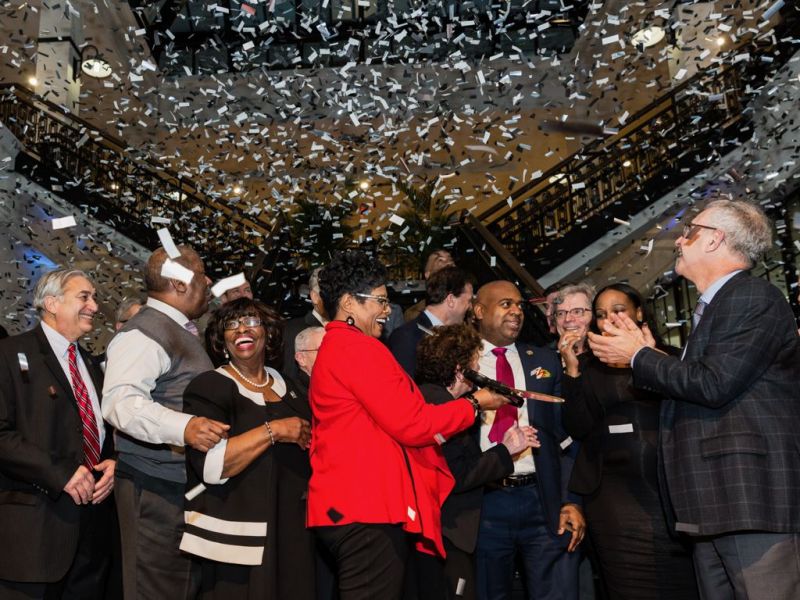ImpactAlpha, May 21 – Prudential Financial may be the biggest impact investor you’ve never heard of.
The insurance company’s impact investment portfolio stands at more than $715 million and is on track to meet its commitment to reach $1 billion by 2020. Last year, the company moved $250 million into investments that foster social and financial mobility.
“If you want to expand and see growth in your business, you need to think differently, more broadly, and diversity is a part of that,” Prudential’s Lata Reddy says on the new episode of ImpactAlpha’s Returns of Investment podcast. “I certainly believe that inclusion is a way to unlock growth.”
Some of Prudential’s investments overlap with the company’s $1 billion commitment to Newark, New Jersey, where it has been headquartered since 1875. That makes Prudential one of the country’s largest place-based investors as well.
I had the pleasure of sitting down with Reddy at the recent Mission Investors Exchange conference in Chicago to talk race, place and impact investing (see ImpactAlpha’s coverage from the MIE conference.)
“We are constantly looking for the innovations, for the gaps,” she told me. “We know that capital markets aren’t perfect. We try to look for inefficiencies, and where we can come up with products and services that speak to those inefficiencies.”
A quick scan of ImpactAlpha shows that Prudential has helped anchor many signature deals. In 2016, Prudential funded much of Leapfrog Investment’s $350 million strategic African investment funds.
Last year, It was part of the equity pool for MyStrongHome, which combines climate-resilient construction with financing and insurance products for coastal residents of Louisiana, South Carolina and Alabama. Prudential also backed Washington D.C.’s $25 million “environmental impact bond” to finance green infrastructure to reduce stormwater overflows.
Prudential also backed a $12.4 million “social impact bond” in Massachusetts to fund immigrant and refugee workforce development. That deal will be rolled into a $75 million “pay-for-success” fund being raised by Maycomb Capital, also backed by Prudential.
>>MORE: Prudential, Kresge and Steve Ballmer back Maycomb Capital’s pay-for-success fund
Prudential’s investments in Newark inevitably raise issues of equity and inclusion. The city of about 282,000 is nearly half black, more than one-third Hispanic and only 13% white. The poverty rate is more than 28%. Prudential invested more than $50 million in the renovation of the old Hahne & Co. department store, with mixed-income housing and a Whole Foods market. She said the company tries to ensure such investments don’t displace current residents and businesses.
Racial Equity
“We are committed that everyone has the opportunity to benefit from the upside of the investments we create,” Reddy said. “It’s one thing to create jobs, but we want to make sure that folks who lives there can benefit from those jobs.” Reddy said that Prudential investee AeroFarms, for example, which grows leafy greens indoors under LED lighting in downtown Newark, trains and hires local residents.
“We are thinking constantly about how we can get capital into the hands of diverse fund managers, diverse financial institutions, diverse financial intermediaries,” Reddy said. “We know there’s been a lack of access for too long in diverse communities, and for diverse stakeholders.”
Reddy began her career as a civil-rights attorney with the U.S. Department of Education. “I was passionate about the work but frustrated by the outcomes,” she says now. Litigation and settlements, she realized, were “putting a bandaid on the backend,” and she wanted to take head-on the structural issues that created problems in the first place.
“As I got more into it in a corporate environment, it was about realizing the power of capital markets,” she says. “If we want to get this impact at scale, we’ve got to get this embedded in business models and change the way we think about capital.”











